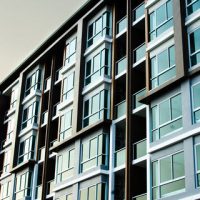Is My Community Association Engaging In The Unauthorized Practice Of Law?

Community associations deal with several different issues every day, many of which are legal in nature. However, it is important that board members understand the limits of their purview; if they exceed these limits, they can be accused of the unauthorized practice of law (UPL). If you are unsure as to whether you have unintentionally engaged in this kind of behavior, or you suspect that your board is doing so currently, contacting a knowledgeable attorney can help clarify what should and should not be done.
What Is “The Practice Of Law?”
There is no one set definition of the “practice of law,” with many a court declaring that creating one would be almost impossible. Attorneys handle so many different matters and assume so many roles that it would be supremely difficult to characterize them all in a handful of sentences. That said, Florida’s courts have developed what is known as the Sperry test to narrow it down.
The Sperry test holds that if a person’s giving advice or aid “affect[s] important rights of a person under the law,” and if the “reasonable protection” of those rights require the person to be more skilled than the average civilian, then the aid constitutes the practice of law. In other words, if Person A’s input has specifically to do with Person B’s legal rights, and the giving of that input requires Person A to be more educated on the subject than the average person, then Person A is practicing law.
Are There Explicitly Approved Tasks?
Unlike with many other industries, Florida’s courts have been fairly consistent in terms of delineating just where the boundaries of a board member’s administrative work end and the practice of law begins. That said, there are always gray areas, and in general, a board member or community manager can do certain things as long as they do not require making judgments or choices based solely on law.
The three most common areas of work that have been specifically defined as not constituting UPL are (1) using or helping others to complete forms approved for non-lawyer use; (2) training others as to the limits of their power; and (3) consulting experienced legal professionals for their input on other tasks – for example, interpreting the governing documents of the association or drafting legal documents. If you or your board has been engaged in any other activity, it may be a good idea to clarify your position with an attorney.
Call A Tampa Community Association Attorney
It may seem like a victimless crime, but a board member engaging in the unauthorized practice of law can cause real harm to themselves, the rest of the board, and the association as a whole. If you have questions or concerns, a Tampa community association attorney from the Seward Law Office may be able to help get them managed. Contact our office today to schedule a consultation.
